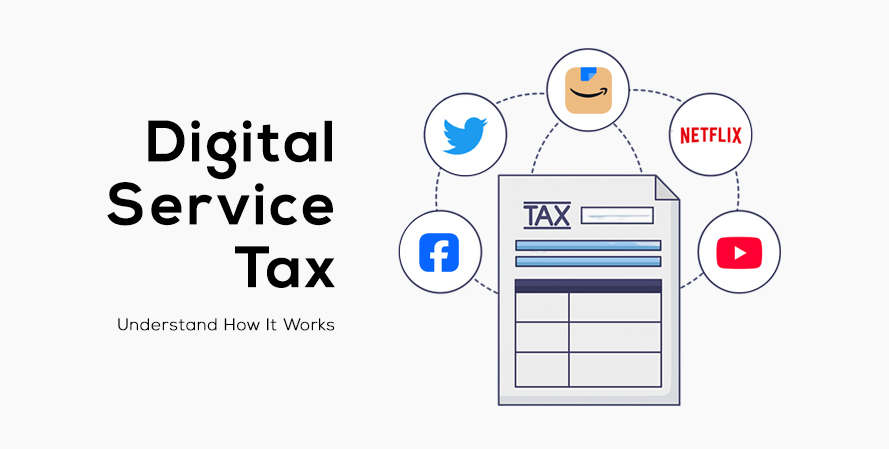The digital economy is growing fast, and Nepal has introduced the Digital Service Tax (DST) to ensure that international companies providing digital services to Nepali users pay taxes fairly. This tax is part of Section 20 of the Finance Act, 2079 (2022).
Here’s everything you need to know about DST in Nepal.

What is Digital Service Tax (DST)?
Digital Service Tax (DST) is a tax on digital services provided by non-resident companies to consumers in Nepal. This ensures that global online service providers contribute to Nepal’s economy.
Examples of Digital Services:
- Online ads
- Movies, TV shows, music, and OTT platforms (Netflix, YouTube, Spotify)
- Data storage and cloud services
- Gaming apps and mobile applications
- Online marketplaces (Amazon, eBay)
- Software updates and supply
- Sale of data collected from Nepali users
- Online courses, consultancy, and skill development
- E-books, e-libraries, and digital newspapers
Note: A consumer is anyone using these services for personal purposes in Nepal. Businesses buying services for commercial use are not considered consumers.
Who Must Register for DST?
All non-resident companies offering digital services in Nepal must register with the Inland Revenue Department (IRD) and get a Permanent Account Number (PAN). Registration is required even if the company hasn’t reached the transaction limit.
Required Documents for Registration:
- Notarized copy of company registration certificate in the home country
- Notarized copy of home country tax ID
- Authorization letter for the company representative
- Passport and photo of the authorized person
- Signature specimen of the authorized person
- If a Nepali citizen is appointed, a copy of citizenship or passport
Processing Time:
- PAN certificate issued within 7 days
- If rejected, IRD provides reasons within 15 days
DST Rate and Taxable Threshold
- Tax Rate: 2% of the transaction value
- Exemption: Transactions up to NPR 2 million per income year
- Above NPR 2 million: Entire transaction value is taxed
- Direct Tax: DST is not added to the service price
Special Note: For online marketplaces, include both goods and services sold in the transaction value, but exclude sales from Nepali sellers.
How to File DST Returns
Non-resident companies must file DST returns yearly, based on the Nepali income year (Shrawan 1 – Ashad 31, 17 July to 16 July).
Return Filing Process:
- Report all transactions in Nepali currency
- Keep accounts on an accrual basis
- Submit returns online within 3 months after the income year ends
- Use IRD-provided formats
- Late filing: 0.1% fee per year
How to Pay DST
- Payment is made online according to the filed return
- Payment deadline: 3 months after the income year ends
- Late payment: 15% annual interest
Audits and Penalties
- The Large Taxpayer Office may audit your digital transactions
- Understating transactions can lead to 50% penalty on the concealed tax
- IRD issues an initial assessment, giving the company 15 days to respond
- A final assessment is issued after reviewing the evidence
Canceling DST Registration
If a company stops providing digital services or wants to deregister:
- Submit an application for cancellation to the tax office
- IRD responds within 3 months, approving or providing reasons for rejection
Key Points to Remember
- DST applies only to non-resident companies serving Nepali consumers
- Registration and PAN are mandatory, even if transactions are below NPR 2 million
- Returns and tax payments must be filed on time to avoid fines and interest
Procedure Relating to Digital Service Tax, 2079 (2022)
Digital Service Tax, 2079 (2022): Download